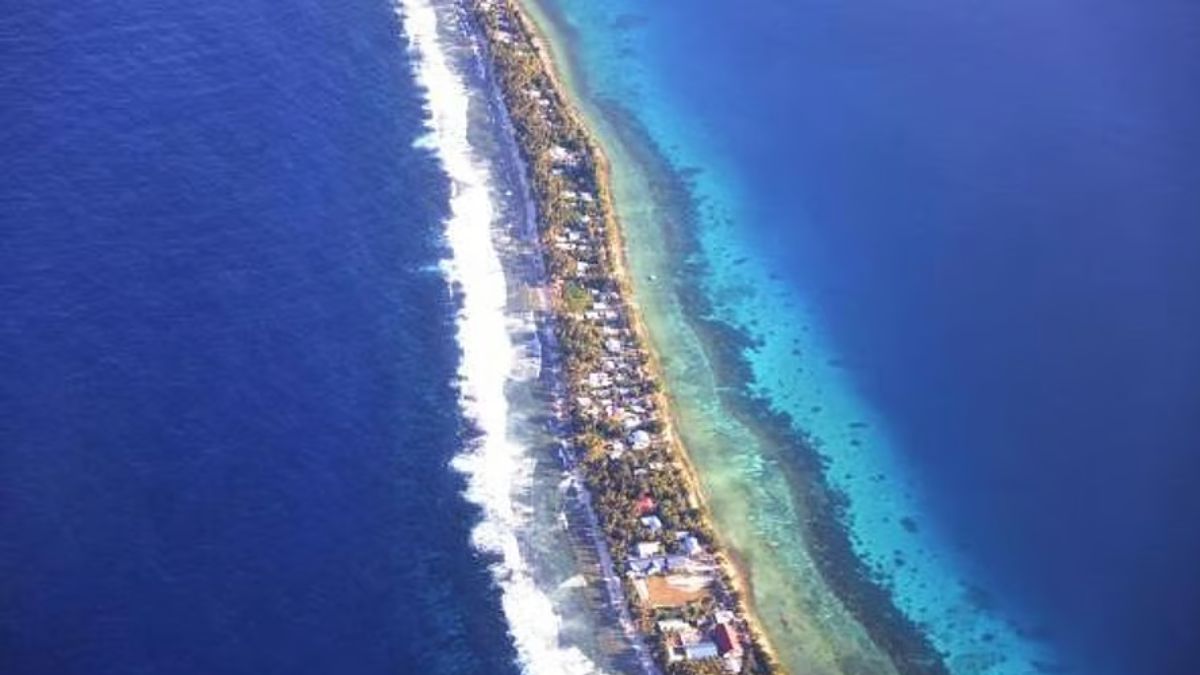More than 80 percent of Tuvalu’s citizens have applied for a special visa to move to Australia, official data revealed on Wednesday, as rising sea levels continue to threaten the low-lying Pacific island nation.
Under a pioneering agreement described by Canberra as the first of its kind globally, Australia is offering annual climate visas to Tuvaluan nationals. “The ballot drew exceptionally high interest, with 8,750 entries, including dependents of primary applicants,” the Australian High Commission in Tuvalu said in a statement.
This figure amounts to roughly 82 percent of Tuvalu’s total population of 10,643, based on the country’s 2022 census.
“With only 280 visas available this year, many applicants will not be successful,” the commission added.
Tuvalu is considered one of the most vulnerable countries to climate change. Scientists have warned that the nation could become uninhabitable within decades due to rising seas. Two of its nine coral atolls have already been almost completely submerged.
The application figures were released just ahead of a major ruling by the International Court of Justice in The Hague, which will define states’ legal duties to combat climate change and assess whether major polluting nations should be held financially responsible for resulting damage.
The case, initiated by Pacific island states, could significantly influence global climate accountability and legal standards.
‘First agreement of its kind’
Australia and Tuvalu signed the ground-breaking Falepili Union in 2024, part of Canberra’s efforts to blunt China’s expanding reach in the region.
Under that pact, Australia opened a new visa category specially set aside for citizens of Tuvalu who will be selected at random.
Impact Shorts
More Shorts“Australia recognises the devastating impact climate change is having on the livelihoods, security, and wellbeing of climate vulnerable countries and people, particularly in the Pacific region,” Australia’s foreign affairs department told AFP last month.
“This is the first agreement of its kind anywhere in the world, providing a pathway for mobility with dignity as climate impacts worsen."
It will also provide Tuvaluans the choice to live, study and work in Australia.
Tuvalu citizens, including those living outside the country, were eligible to be included in the ballot if they are aged over 18 and pay a Aus$25 fee (US$16).
The visa deal has been hailed as a landmark response to the looming challenge of climate-forced migration.
The Falepili pact commits Australia to defending Tuvalu in the face of natural disasters, health pandemics and “military aggression”.
“For the first time, there is a country that has committed legally to come to the aid of Tuvalu, upon request, when Tuvalu encounters a major natural disaster, a health pandemic or military aggression,” Tuvalu Prime Minister Feleti Teo said at the time.
“Again, for the first time there is a country that has committed legally to recognise the future statehood and sovereignty of Tuvalu despite the detrimental impact of climate changed-induced sea level rise."
The agreement also gives Australia a say in any other defence pacts Tuvalu signs with other countries, raising concerns at the time that the Pacific nation was handing over its sovereignty.
Tuvalu is one of just 12 states that still have formal diplomatic relations with Taipei rather than Beijing.
With inputs from agencies


)

)
)
)
)
)
)
)
)



